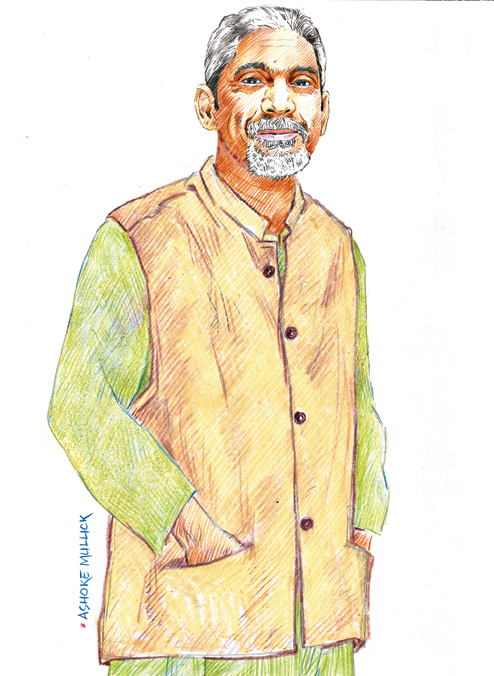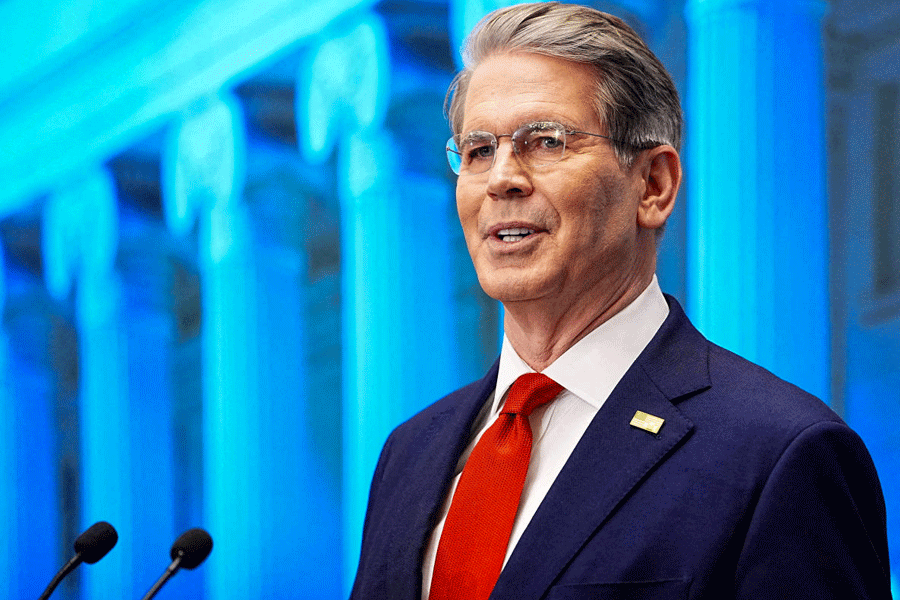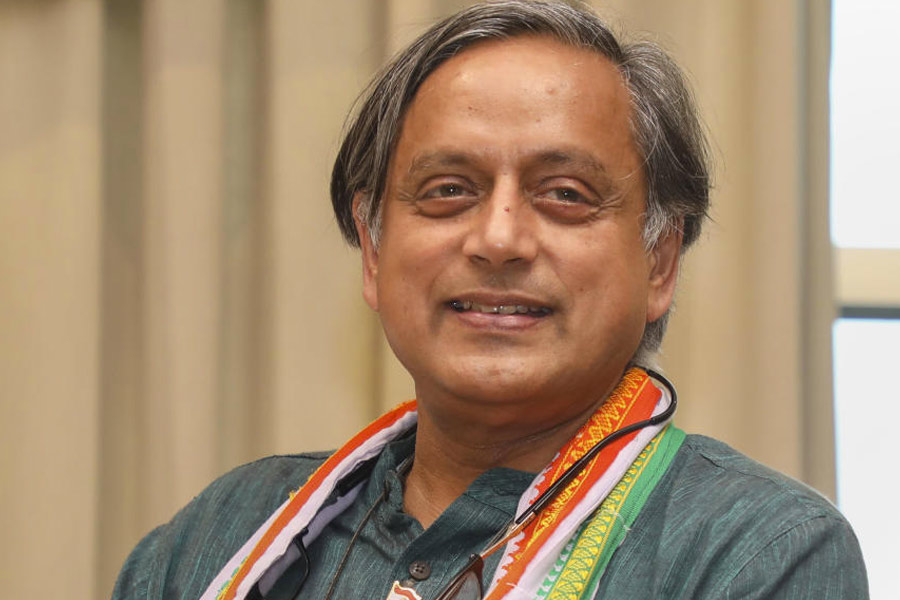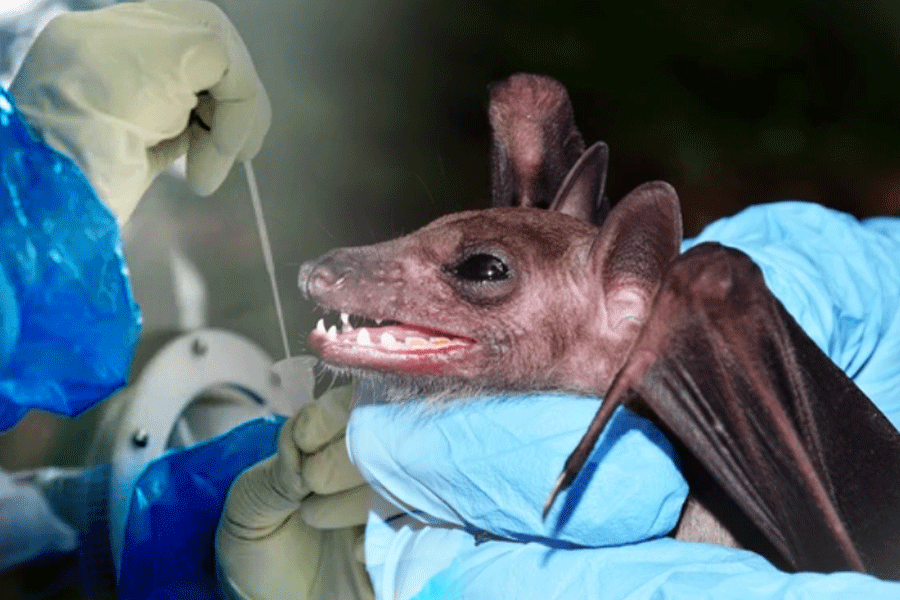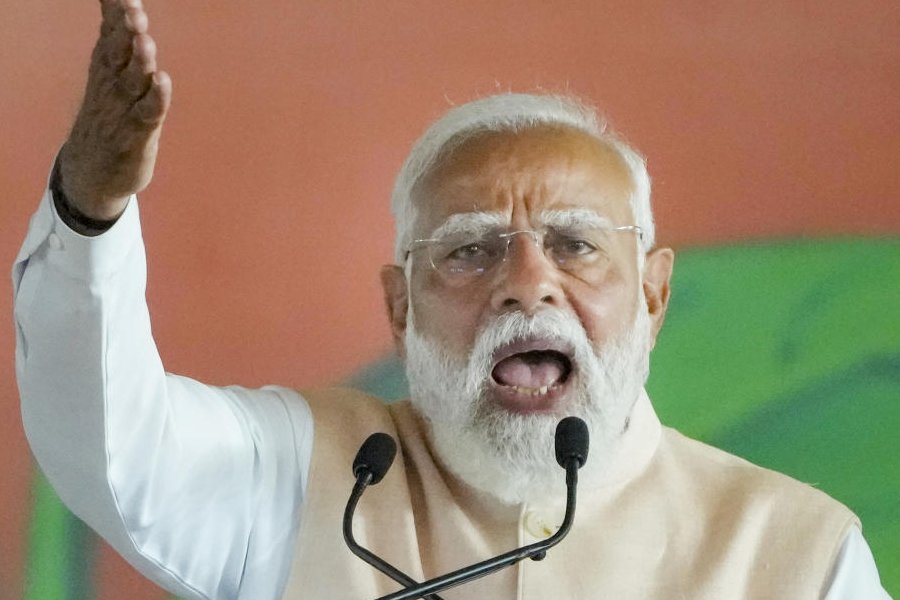
The sweet, melodious chirping of the Indian golden oriole welcomes me into the leafy residential quarters of Socorro village, just a kilometre or two from the beautiful Goa Assembly complex atop a hillock overlooking the river Mandovi.
But it is another well-modulated voice - which holds the entire global mental health community in thrall - that has brought me to this tiny suburb of Mapusa town. I am here to meet Dr Vikram Patel, arguably the best known Indian mental health professional in the world today.
Last week, Time magazine included him in its annual list of 100 most influential people in the world. Patel and his colleagues at Sangath, an organisation that he helped set up some 20 years ago, have been revolutionising the way mental health issues are approached and treated not just in India but across the world.
Prime Minister Narendra Modi is among four Indians on the list. The award recognises the "activism, innovation and achievement of the world's most influential individuals," Time says.
"This Time thing has actually taken me by total surprise," Patel, 51, says. When he received an email from the American magazine last month informing him about the list and inviting him to a gala in New York to mark the event, he first thought it was a hoax.
"To be honest with you, I do not think anybody in India would give so much importance to it [the Time list]," Patel, just back from New York, says.
We are sitting in his tiny office in the two-storey building of Sangath, which is supported by Indian and foreign research grants. The room, with a table and a few plastic chairs around it, underlines the organisation's frugal way of functioning. The walls are an exception: they are adorned with the accolades that have come his way.
"As an academic, I would give more importance to this prize that hangs on that corner," Patel adds, pointing to the Rhoda and Bernard Sarnat International Prize in Mental Health, instituted by the Institute of Medicine, an independent non-profit body of US scientists. Last October, when he was awarded the prize, he became the second non-American to win it.
Those in the mental health field were not surprised, for Patel and Sangath have for long been spearheading a campaign against mental illness, arguing that it is not just confined to the West, as largely believed, but equally rampant in poor and developing countries. Through innovative experiments that have withstood scientific scrutiny, the team has demonstrated that medicines should be the last resort and not seen as the only solution to disorders.
"The problems associated with mental health are deeply connected with one's personal life, as opposed to schizophrenia, which is clearly a disease. Most people who suffer from depression, anxiety, suicidal feelings or post-traumatic stress disorders do not see them as a mental health problem but as a social disorder - a disorder caused by social circumstances," Patel says.
The good doctor, wearing his trademark kurta and blue trousers, speaks with passion - and gestures that are as evocative as his words. It turns out that he is quite a theatre lover.
"I used to be one of the lead actors of a theatre group called Hetu when I was in medical school. Prithvi Theatre was our stomping ground. I'd got many positive reviews," he recalls. Someone - whose name he cannot recall now, but whose television soaps later became successful eyeball gatherers - offered him a role in a TV series. "The idea sounded so crass then," he laughs.
TV's loss, of course, was society's gain, for Patel's focus has always been society. During his research, he found that when there is a mental disorder people go to a priest, faith healer, friend or someone in the community whom they trust. "Approaching a psychiatrist is the last thing on their minds," he observes. He used this insight to find out if trained but non-medical counsellors drawn from the community could provide effective psychosocial services to people who needed help.
Today, Sangath's presence is felt in most parts of Goa. "Almost 95 per cent of the people who seek our assistance are provided this at a place where they are comfortable, be it village halls or schools. Only five per cent need to visit our clinics," he says.
The belief that psychiatry was a bridge between medicine and society drew Patel to the branch. But when he topped his batch in MBBS in the University of Bombay and decided to study psychiatry, his family was dismayed.
"Psychiatry was considered to be the bottom of the heap in terms of profile. My parents naturally wanted me to go for more 'prestigious' specialisations such as neurosurgery. They were disappointed," he chuckles.
Patel's father, originally from Gujarat, was an engineer who was initially in the Indian Army and later worked for the private sector in Mumbai. His mother is a homemaker. One of his two sisters is a banker in Mumbai (her husband, Devang Khakhar, heads the Indian Institute of Technology, Bombay), while the other teaches in a French university.
Today, Patel wears many hats. Apart from spearheading Sangath, he is a joint director of the Centre for Global Mental Health in London and co-director of the Delhi-based Centre for Control of Chronic Conditions that Sangath jointly set up with the Public Health Foundation of India (PHFI), New Delhi.
And, as you'd expect, he leads quite a peripatetic life. "These days, I spend about four months in Delhi, two months in Goa and one month in London." The rest of the year is spent in places where he has ongoing projects - in India and abroad.
Over the years, Sangath has expanded its horizons. In addition to Goa, it has footprints in Assam, Bihar, Haryana, Madhya Pradesh and Maharashtra. In terms of scope, it covers a vast area starting right from early brain development disorders to mental health issues related to adolescence and those that crop up in old age. "We cover the entire spectrum of mental health disorders," he says.
Patel's work and education have taken him to various parts of the world. After spending a year as an intern at the Institute of Psychiatry at the Goa Medical College, he left for Oxford on a Rhodes scholarship and subsequently moved to King's College London for his PhD. He chose Zimbabwe for his PhD field study.
What took him to Zimbabwe? "My great love for African music and my wanderlust," he replies.
It was his experience in Zimbabwe that "opened" his eyes. "In 1993, when I landed in Zimbabwe, there were just 10 psychiatrists in that country of 10 million people. Nine of the 10 were foreigners who spoke no regional language," he recalls.
He really had to "unlearn" what he'd learnt at King's - widely perceived as one of the best psychiatry schools in the world. It prompted him to look for an alternative mental healthcare strategy which would be inclusive and more affordable.
"The current approach that psychiatry takes almost ignores social worlds in which mental health problems arise and tries to become highly biomedical like other branches of medicine such as cardiology or oncology. But psychiatry has to be far more embedded in people's personal and social worlds," he holds.
Even in Western countries, where the number of psychiatrists far exceeds that in India, only 50 per cent of the needy get psychiatric care, he says. "In countries like ours, nearly 90 per cent of the affected are neglected."
Which is why, after his PhD, he spurned lucrative job offers in London and headed back to Goa, with a fellowship grant from the British Wellcome Trust. Midway through the programme, when the fellowship suddenly stopped, he did private practice for a year to fend for himself. "But I was determined not to go back to London," he says.
Apart from work, Goa had other attractions, too. Patel loves the beaches: "I am passionate about swimming, which I try to do at least five times a week." He also loves to read - fiction and non-fiction - and listen to music, from Indian Sufi-rock to Latin American and rhythm and blues, apart from the old favourite, African music.
His family was in Goa till recently, but moved to Delhi for his son's education as well as Sangath's collaboration with the PHFI. His wife, Dr Gauri Divan, who was two years junior to him in college, runs a Sangath project in Rewari in Haryana. Divan, daughter of senior Supreme Court advocate Anil Divan, is a paediatrician specialising in early childhood brain development disorders such as autism and cerebral palsy.
Farai, their only child, named after a close Zimbabwean friend, has just completed his school finals and intends to study biology and focus on wildlife and environmental issues. "He is absolutely certain that he doesn't want to be a doctor," Patel says.
In the larger world of psychiatry, Sangath stands out. His peers from across the world seek to collaborate with it. "They have a fine infrastructure to do mental health research in low-resource settings," says Charles F. Reynolds, professor of geriatric psychiatry at the University of Pittsburgh in the US. Reynolds and his team are already working with Sangath and the Goa Medical College on a project that would help monitor and screen older people for depression.
What sets Sangath apart from other bodies is that it evaluates its work using robust scientific methods. "If you do something new and out of the box, it could be wrong - that could be useless, or dangerous. So there is a need for an objective evaluation," he stresses.
Mental health, he adds, is "too precious" to be left to psychiatrists alone. "We believe that mental health is everybody's business. And there is no health without mental health."

